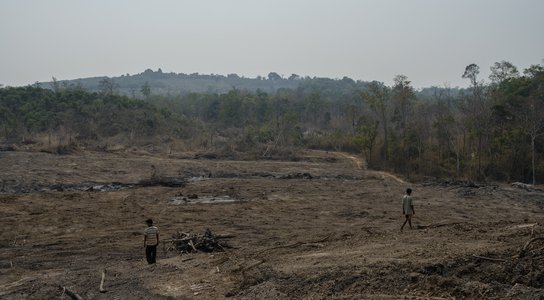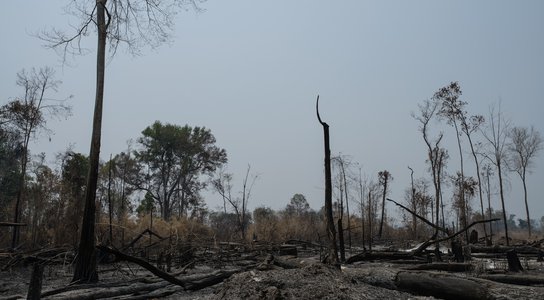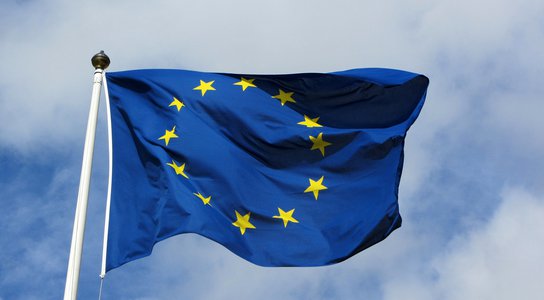Brussels, Thursday 6th September 2018 - In a new briefing published today, Global Witness highlights the role that EU-based investors and their subsidiaries play in bankrolling companies causing social and environmental harm.
It lays out disturbing evidence of human rights violations, land grabbing, deforestation, corruption and violence against land and environmental defenders associated with the operations of companies funded by EU investors and their clients.
The briefing publishes four case studies involving European investors in:
- Oil exploration in Africa’s oldest national park
- A mining project in India which sparked violent protests
- Deforestation and land grabbing in Asia and Africa
These projects all faced major setbacks and costs as a result of Environmental, Social and Governance (ESG) concerns, and several of them never went ahead at all - also clearly illustrating the link between ESG risk and material cost.
The anti-corruption NGO is calling for the EU’s landmark Action Plan on Financing Sustainable Growth to include more specific and tougher measures to avoid the problems outlined in these case studies happening again. They have also highlighted how some investors have taken positive steps to address these issues directly themselves.
The Global Witness briefing follows MEP Paul Tang’s draft report on the Disclosure of Sustainability Risk regulation, which proposes requirements for institutional investors to carry out due diligence in line with OECD guidance, as well as a broadening of the definition of sustainability risk to go further than simply financial risks to investors - and also include risks to people and the planet.
Regulating EU-based financial investors would provide certainty that they are not playing a role in bankrolling destructive practices and reduce the risk of Environmental, Social and Governance abuse and associated financial cost.
Global Witness has also said that this should be implemented on EU-based financial investor’s overseas subsidiaries, and must be done through the introduction of mandatory due diligence to identify, mitigate and publicly report on these ESG risks in their investment chains.
Rachel Owens, Head of EU Advocacy for Global Witness said:
“What these case studies show is that it is possible for investors to effectively identify environmental, social and governance (ESG) risks in their investment chains - and take real and encouraging action to mitigate and prevent these.
“What they also sadly show is that some investors, despite being alerted to the facts, refuse to accept responsibility for both a lack of due diligence and the actions of their subsidiaries.
“In July we published the stories of the environmental defenders who are trying to stop these kinds of projects on a daily basis. Now we are sharing information on the financial institutions from Europe that are funding these projects or facilitating others to do so. European citizens have a serious stake in this as often it’s their money, their pensions, and their investments that are being channelled towards these destructive projects with little effort made to mitigate the harm.”
The briefing also outlined how some investors wash their hands of responsibility when it comes to their subsidiaries on the basis that their shares are held “in custody” on behalf of their clients or they are “passive” investments. The NGO has called for this “responsibility gap” to be closed.
“Mandatory due diligence would help EU-based investors, and their overseas subsidiaries, to identify, mitigate and publicly report how their investments work for societal good. It is now crucial that the European Parliament backs the rapporteur’s ambitious approach.”
Paul Tang, MEP rapporteur on the proposal for Disclosure of Sustainability Risks Regulation said:
“Europe must do better. The legacy of this Parliament must be to make the financial sector truly accountable for environmental and human rights harms. The European Parliament voted for mandatory due diligence through its Own Initiative Report on Sustainable Finance in April. Now it's time to put it into action and send a message loud and clear that EU investors will be more accountable for their impact on people and the planet.”
/ ENDS
Contacts
-
Rachel Owens
Head of EU Office and EU Advocacy / Directrice du Bureau (UE). Campaign Lead on Corporate Accountability
Notes to editor:
- Interview opportunities are available with Rachel Owens, Head of EU Advocacy at Global Witness
- For more information or interviews please contact Heather Iqbal, Senior Communications Advisor on [email protected] or +44 7828 505 758.
- The Briefing ‘Indecent Exposure: How EU based investors and their subsidiaries are helping to bankroll human rights violations and environmental destruction’ can be downloaded here (PDF).
- The Global Witness Briefing ‘EU Investor Due Diligence: Ensuring finance works for people and planet’ from July 2018 can be downloaded here (PDF).
- More information on the 2017 report on attacks on Land and Environmental defenders: ‘At What Cost?’ released in July 2018 can be found here.
- An indicative timeline of EU Parliamentary activity on sustainable finance can be seen below
- 23 May 2018: Legislative proposal published – Disclosure on Sustainability Risks Regulation
- 20 July 2018: Council Working Party first discussion on SusFin package
- 4 August 2018: Paul Tang published his draft report
- 3 September 2018: First ECON debate on Tang’s report
- 12 September 2018: Deadline ECON amendments
- 25 September and 5 October 2018: Council Working Party discussions on SusFin package
- 18 October 2018: Second ECON debate
- 5 November 2018: ECON vote. Followed by potential trialogues with the Council
You might also like
-
Briefing Indecent Exposure
How EU investors and their subsidiaries are helping to bankroll human rights abuses and environmental destruction
-
Briefing EU investor due diligence
It is crucial to ensure finance works for people and planet
-
Press release Mandatory due diligence is the missing link to EU sustainable finance
The report explicitly calls for financiers to carry out mandatory due diligence on their investments.